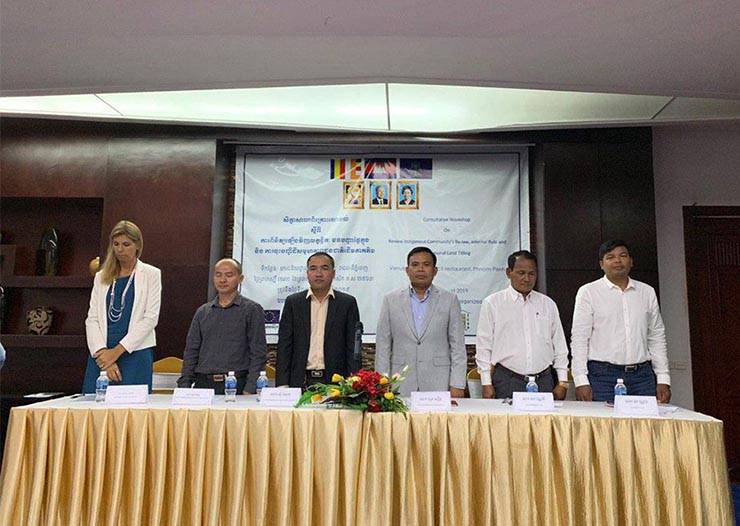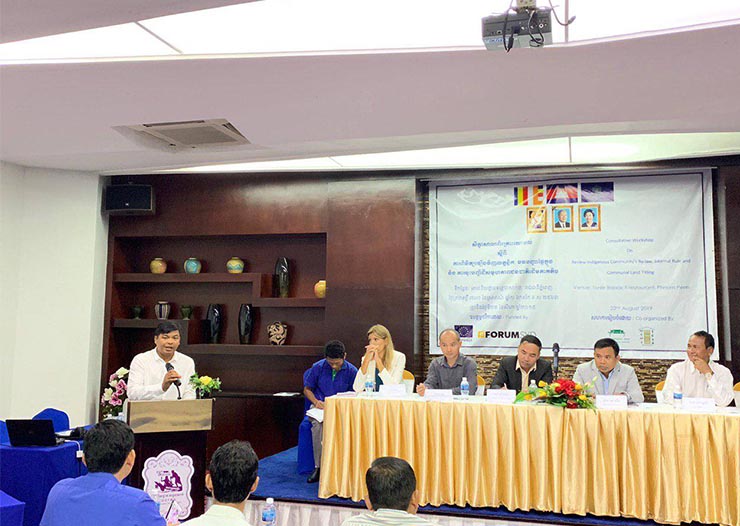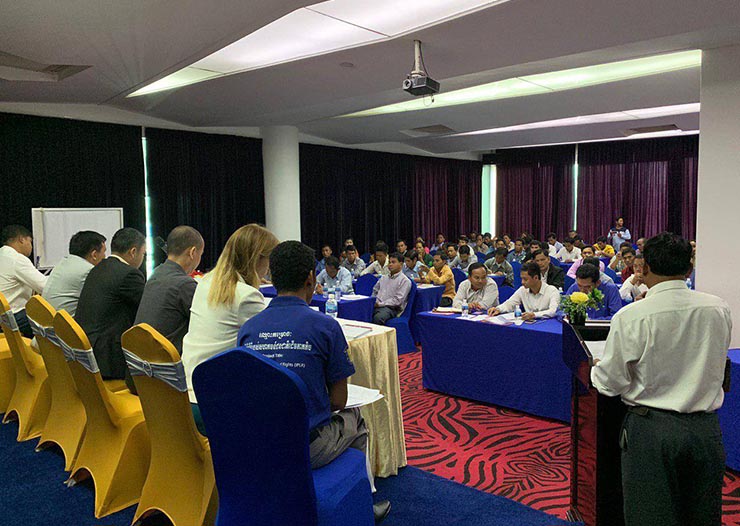
The NGO Forum on Cambodia, ICSO and in collaboration with a number of NGOs, organized Consultative Workshop on Review Indigenous Community’s By-law, Internal Rule and Communal Land Titling on August 22, 2019 at Tonle Bassac 2 Restaurant, Phnom Penh. There were 72 participants (08 women) who are from NGO partners, European Union, development partners, representative of Ministry of Rural Development, Ministry of Interior, sub-national and authority of Ratatikiri Province. This workshop aimed for creating a multilateral forum and provide opportunity for stakeholders to discuss common solutions. And to address the common challenges of good government, community and civil society partnership on the process of statute, internal regulation and the possibility of community collective land registration. Furthermore, to organize joint mechanisms and continuous action in accelerating the availability of collective land registration.

The process of establishing the statute, the internal regulations and the acquisition of indigenous community collective title has not been smooth of the 61 communities that applied, 25 were unavailable due to overlapping grounds, some communities were disputed and landless, and there were mines. For example, on April 4, 2019, ICSO cooperates with the NGO Forum, the Cambodian Indigenous Peoples’ Organization (CIPO), and the Mekong River Land Governance (MRLG) with the participation of Ministry representatives. The Ministry of Agriculture, Forestry and Fisheries represents the Ministry of Agriculture, Forestry and Fisheries, the Ministry of Rural Development, and the Ministry of Interior as well as the Ministry of Interior. Department of Urban Planning and Construction Department Lum Governor and the council has organized a study tour in the commune Seda district in Ratanakiri Province. In a discussion at the Commons Sub-Commit Village Headquarters, SEDA Communities Chief representing 5 Communities of Cedar Communities, mentioned that the Lower and Lower Sikh communities have applied for registration with the Ministry of Land since 2014 but have not yet. The collective title, while the three communities that received the legal entity, had not yet been filed as there was no hope. The community is really concerned and is asking for relevant institutions to help find a listing solution. Members of the Sedah commune council also supported and raised concerns that living in protected areas would face legal consequences in the future if they were not given a collective title. Consistent with this, representatives of the Department of Land Management also indicated that all applications for registration of indigenous lands affecting protected areas were generally difficult and inaccessible because the Ministry of the Environment had not authorized them.

On the other hand, some community statutes and community regulations are not yet responsive to their specific situation and needs, which require consultation between the community statute and the internal regulations. How to be consistent and respond to their specific situation. Based on the above background and ICSO’s experience in supporting the community, drafting the statute, the internal rules, as well as the stakeholders, sees the establishment of a forum for participation by all parties to understand and seek common solutions to the challenges. Moreover, this is also the recommendation of the team who visited and visited the community in Sdey district, Ratanakiri province on April 4, 2019.
The consultation workshop was conducted successfully. The Stakeholders were participated in discussions to identify common ground and solutions. Moreover, the internal statutes and regulations were consulted, reviewed, and communicated to the specific situation and needs of the community in accordance with technical and legal aspects.